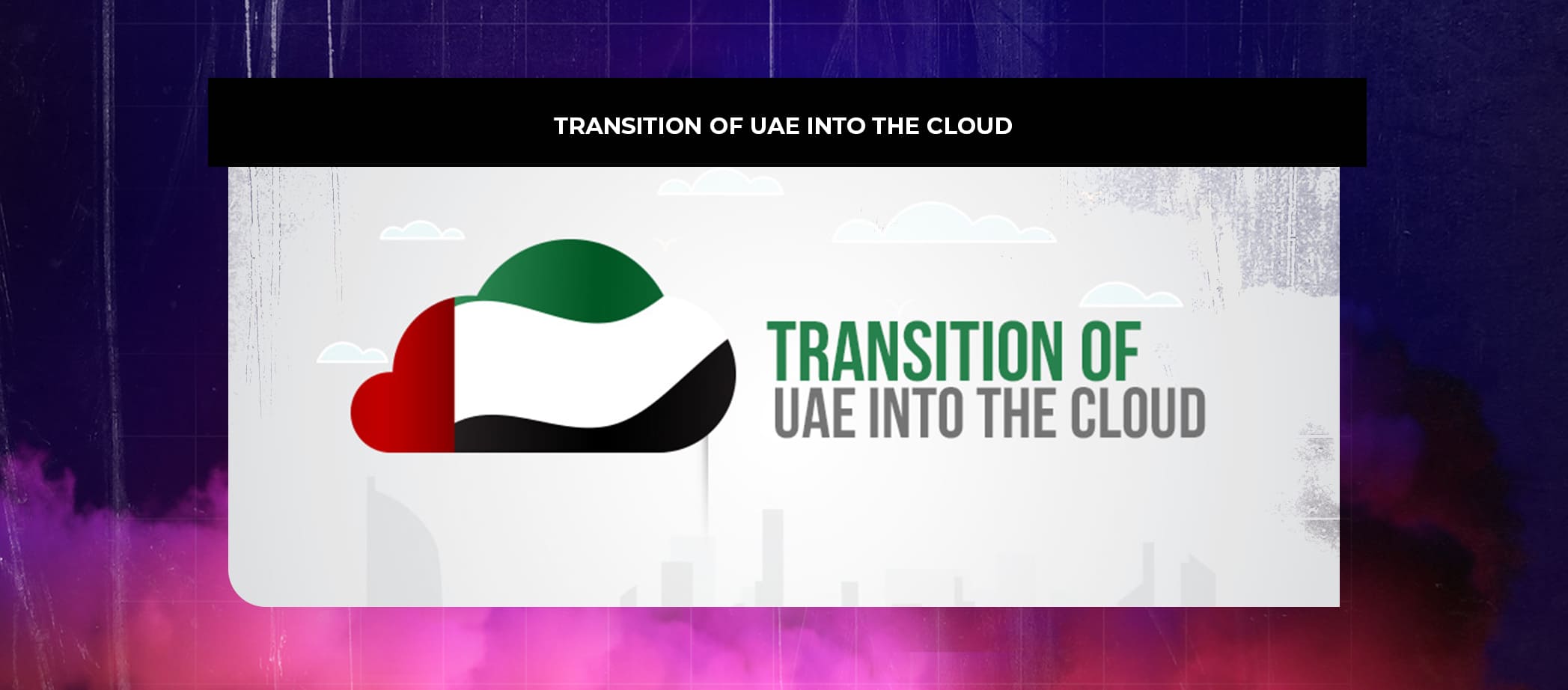Home » Cybersecurity » Cloud Security » UAE businesses are increasingly utilizing cloud-based applications
UAE businesses are increasingly utilizing cloud-based applications

Organizations all around the UAE are boosting their digital initiatives and adopting cloud-based tools to support their workforce. However, there are obstacles to achieving this. As data travels back and forth between corporate networks and the cloud, organizations continue to encounter challenges with inadequate migration capabilities, managing multi-cloud complexity, unexpected application performance, and security.
Markets and Markets’ MEA Cloud Computing Report projects that the UAE’s cloud computing market will increase to US$31.4 billion by 2026. Furthermore, McKinsey Digital estimates that the global market for enterprise IT services is approximately US$2.4 trillion, demonstrating that there is still enormous space for expansion for cloud based applications. The rise is anticipated to result from an uptick in firms in the area modernizing operations, data centers, divisions, and perhaps entire corporations with technology. With constantly evolving business demands which include anywhere-anytime access, IT departments are strategically positioned to quickly deploy effective solutions to support organizational growth and cutting-edge initiatives related to flexibility, scalability, cost reduction, and quicker time to market.

THE MIGHTY ONES FLOCK TO GULF
Unsurprisingly the Middle East and Africa data center market saw investments of $6.55 billion in 2021 and will see an investment of $12.19 billion by 2027. Investors have paid attention. Over $2 billion is anticipated to be spent by the tech giants in the UAE on data center services. Hyperscalers like Amazon, Microsoft, Google, IBM, and Oracle are vying for market dominance to make it possible for businesses to outsource IT tasks to big, remote data centers. AWS, which surprised many established tech firms by dominating the cloud computing adoption market, invested in Bahrain to house its first Middle Eastern data center and is planning to open three more in the UAE. Google will set up and run a cloud region in Dammam with Saudi Aramco, a state-owned company.
Amazon is also facing intense competition from rivals like Microsoft and Oracle. Microsoft established two data centers in the UAE; Oracle launched an underground cloud area with two data centers in Abu Dhabi.
It demonstrates that the region’s potential for innovation is carefully considered. We have a rapidly expanding startup and scale-up environment and top-tier entrepreneurial intellect solving complicated issues, and the fact that the major internet companies are investing heavily in establishing regional data centers is a credit to the diligent work of the area’s tech wits.

Guide to hiring a Remote Cloud Engineer in 48 Hours
NERVE CENTER OF THE DIGITAL INFRASTRUCTURE
The Middle East is a “priority region” for internet companies as they make huge investments to improve their infrastructure. It is becoming the hub of the digital infrastructure, connecting individuals, organizations, and the rest of the world. A clear trend in recent years has been the establishment of specific cloud data centers in the Middle East by hyperscalers including Microsoft, Oracle, Alibaba, and Google Cloud. AWS has stated that it plans to establish a cloud data center in the area this year. These developments have undeniable importance for local businesses. Data centers are the hub of IT infrastructure in the banking, energy, transportation, and healthcare industries. Every sector depends on the quick and secure applications that a contemporary data center can now offer. Storage companies, like AWS, make leasing as simple as they can by providing variable size and pricing options.
Customers can use Platform-as-a-Service (PaaS) and Infrastructure-as-a-Service (IaaS) offerings, allowing other Solution-as-a-Service (SaaS) providers to make their cloud solutions accessible via regional availability zones.
Also Read: Three business trends that will determine how cloud technology develops in the UAE
STARTUPS STAND TO BENEFIT
The more data a business will analyze, the more it will need to spend on servers and storage space. Organizations of all sizes, including startups, public and private businesses, and educational institutions, are utilizing data centers and the internet to scale their operations. It is less expensive to lease space in data centers that house several businesses. For instance, the Dubai-based startup Digiteam delivers its sales digitalization and gamification on cloud adoption solutions and expands to new customers across various regions. Similar to this, Norbloc, the technology provider driving the UAE KYC Blockchain ecosystem, enables quicker and more secure customer data exchange used by the nation’s biggest financial institutions.
Since 90% of companies in the region have jumped on the digitization bandwagon, these hyperscalers are paving the way for corporations to shift applications and workloads to the cloud based app while complying with local requirements that require specific data to be preserved in-country. Having a data center “zone” within the nation is necessary for compliance requirements for most sensitive data types. Data security is becoming more and more integrated into product design as regulations change in tandem with consumer expectations for how their data is handled.
These hyperscalers enable regional clients to back up their data domestically, which is essential for clients working in regulated industries and adhering to national legislation.

The fundamental tenet of the data privacy legislation in the United Arab Emirates and Saudi Arabia is that businesses should gather the least amount of data possible, keep track of its location, and safeguard it. In response to AWS’s announcement of its investments in the UAE, Google’s creation of its data center in Saudi Arabia in partnership with Aramco, Huawei’s strategic investments in the area, and the presence of Oracle, Microsoft, and IBM in the region, global tech vendors will either increase capacity at existing data centers or build new ones. On the innovation front, each company is making significant investments in automation, monitoring, and management solutions for real-time control over infrastructure operations to differentiate itself as a one-stop-shop provider of data centers. There are currently indications of edge computing and more environmentally friendly, sustainable infrastructure and products. The region is starting to hear more talk about green data centers, which is in line with international sustainability objectives. For their cloud-based solutions, these hyperscalers are adding AI/ML, advanced analytics, and intelligent automation to differentiate their products and draw in new clients.
Also Read: How the Middle East Transformation goals are affected by Cloud Computing
Final Words
Despite many barriers to cloud adoption including security needs, a skills deficit, and data sovereignty rules, digital technologies are continually evolving.
One thing is certain: as the Middle East develops into a global technology hub and creates a cutting-edge digital economy, more Silicon Valley companies will plant their flags there to build data centers as the sector booms. The data center industry is developing quickly because of the pioneers and business people in the area and it isn’t expected to slow down anytime soon.
If you’re looking to hire Cloud Talent, PeoplActive can quickly accommodate your special hiring needs. Utilize our well curated talent pool and hire the finest talent within 48 hours of making the requests.
ACT NOW!
Hire Top-tier Cloud Talent
The post UAE businesses are increasingly utilizing cloud-based applications appeared first on PeoplActive.
*** This is a Security Bloggers Network syndicated blog from PeoplActive authored by Dariel Marlow. Read the original post at: https://peoplactive.com/cloud-based-applications-uae/





